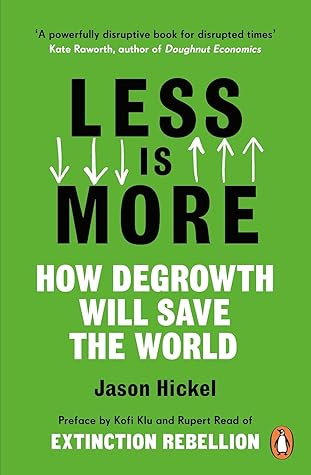More on this book
Community
Kindle Notes & Highlights
by
Jason Hickel
Read between
October 20 - December 1, 2024
Indeed, there is a bitter irony to the fact that we have been persuaded to use the word ‘growth’ to describe what has now become primarily a process of breakdown.
The trauma of climate breakdown in the South directly echoes the trauma of colonisation. The South has suffered twice over: first from the appropriation of resources and labour that fuelled the North’s industrial rise, and now from the appropriation of atmospheric commons by the North’s industrial emissions. If our analysis of the climate crisis is not attentive to these colonial dimensions, then we have missed the point.
Wafa Abdulsakhi liked this
Ecological science requires that we learn to see the human economy not as separate from ecology but as embedded within it. This poses a radical challenge to the dominant world view, and to capitalism itself.
after a certain point, which high-income nations have long surpassed, more GDP does little to improve core social outcomes.11 The relationship begins to break down.
people who live in highly unequal societies are more likely to shop for luxury brands than people who live in more equal societies.21 We keep buying more stuff in order to feel better about ourselves, but it never works because the benchmark against which we measure the good life is pushed perpetually out of reach by the rich (and, these days, by social media influencers). We find ourselves spinning in place on an exhausting treadmill of needless over-consumption.
When people live in a fair, caring society, where everyone has equal access to social goods, they don’t have to spend their time worrying about how to cover their basic needs day to day – they can enjoy the art of living. And instead of feeling they are in constant competition with their neighbours, they can build bonds of social solidarity.


